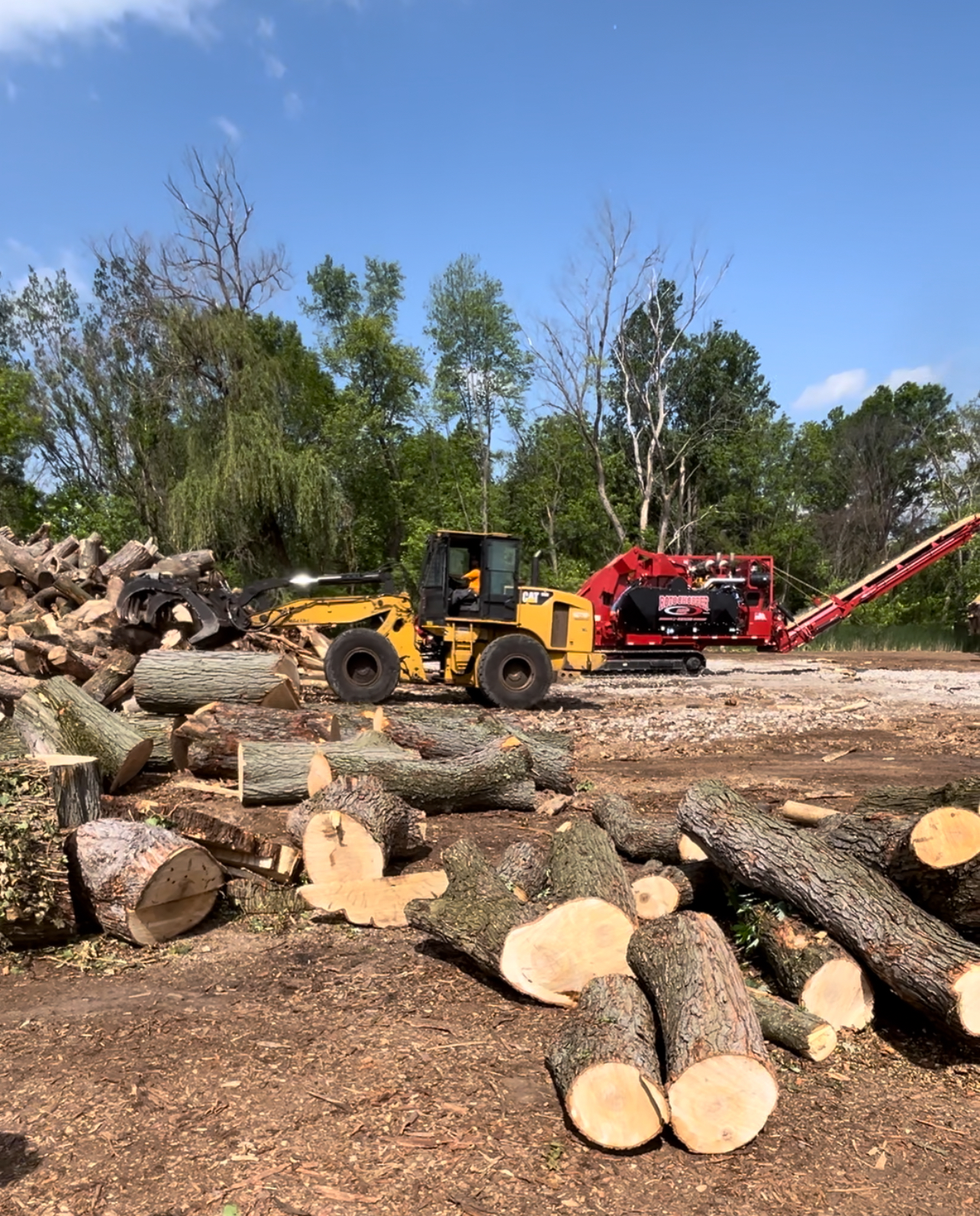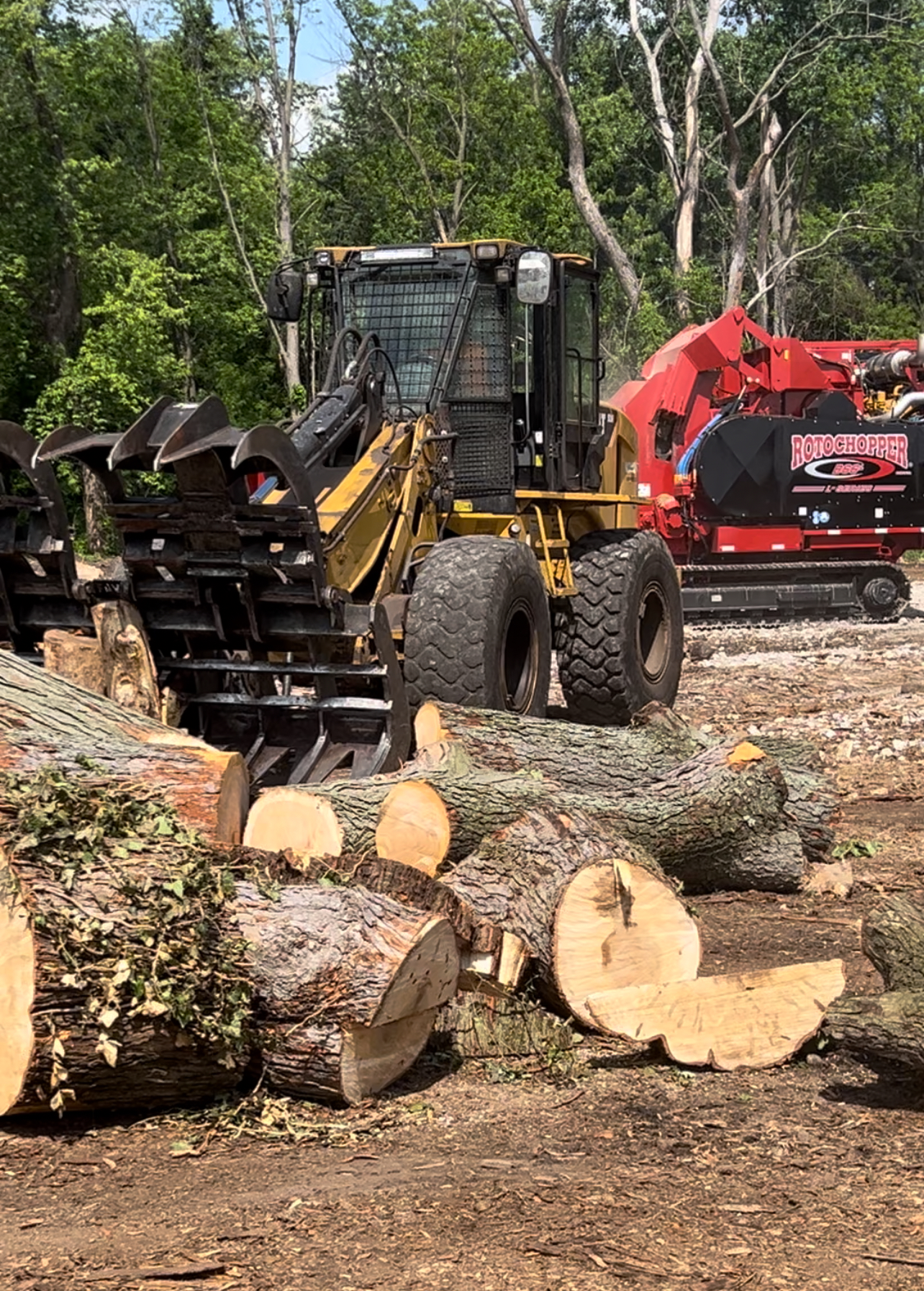Mobile Grinding Services
Superior Product | 5-Star Service
Commercial Customers

Home Owners
Onesite Mobile Wood Waste Grinding
MOBILE GRINDING SERVICE
We offer efficient grinding services for government municipalities, solid waste districts, landfills, landscaping companies, and landowners throughout Michigan. Our Rotochopper B-66L horizontal grinder is the most advanced fiber processing system on the market. It is completely portable and self -contained. Capable of processing brush, trees, tree limbs, clearing debris, yard waste, storm debris, pallets, and other mixed wood waste.
Why use Our Grinding Services
![]() We use the latest grinding equipment and technology, with extremely high production rates
We use the latest grinding equipment and technology, with extremely high production rates
![]() Remote controlled and on tracks provides greater on-site mobility
Remote controlled and on tracks provides greater on-site mobility
![]() Our grinder operators have over 25 years experience
Our grinder operators have over 25 years experience
![]() Recycle your wood debris onsite, reducing disposal cost
Recycle your wood debris onsite, reducing disposal cost
![]() Various screen sizes to meet your finished products needs
Various screen sizes to meet your finished products needs
![]() We can produce a product for you to use/sell or we can dispose of the material for you
We can produce a product for you to use/sell or we can dispose of the material for you



